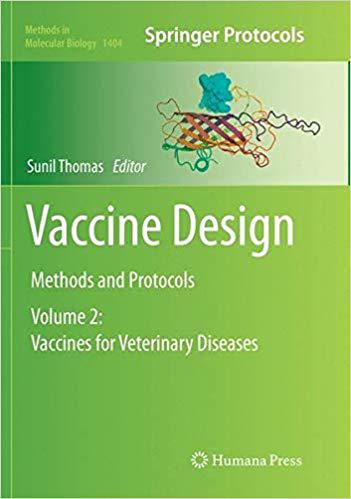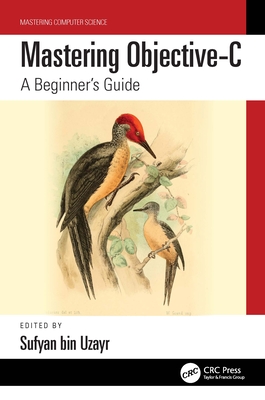图书简介
This text provides a practical guide providing step-by-step protocol to design and develop vaccines. Chapters detail protocols for developing novel vaccines against infectious bacteria, viruses, fungi, and parasites for humans and animals. Volume 2: Vaccines for Veterinary Diseases includes vaccines for farm animals and fishes, vaccine vectors and production, vaccine delivery systems, vaccine bioinformatics, vaccine regulation and intellectual property. Written for the Methods in Molecular Biology series, chapters include introductions to their respective topics, lists of the necessary materials and reagents, step-by-step, readily reproducible laboratory protocols, and tips on troubleshooting and avoiding known pitfalls. Authoritative and practical, Vaccine Design: Methods and Protocols, Volume 2: Vaccines for Veterinary Diseases aims to ensure successful results in the further study of this vital field.
Challenges in Veterinary Vaccine Development and Immunization.- Development of Mycoplasma hyopneumoniae Recombinant Vaccines.- Computational Prediction of Immunodominant Epitopes on Outer Membrane Protein (Omp) H of Pasteurella Multocida towards Designing of a Peptide Vaccine.- DNA Vaccines against Maedi-Visna Virus.- Detection of Avian Antigen-Specific T cells Induced by Viral Vaccines.- Generation of Newcastle Disease Virus (NDV) Recombinants Expressing the Infectious Laryngotracheitis Virus (ILTV) Glycoprotein gB or gD as Dual Vaccines.- A Reverse Genetics Approach for the Design of Methyltransferase-Defective Live Attenuated Avian Metapneumovirus Vaccines.- Development of Fasciola Vaccine in an Animal Model.- Development of Experimental Vaccines against Liver Flukes.- Towards a Preventive Strategy for Toxoplasmosis: Current Trends, Challenges, and Future Perspectives for Vaccine Development.- DNA Vaccination in Chickens.- Selection of Vaccine Candidates for Fish Pasteurellosis Using a Reverse Vaccinology and an In Vitro Screening Approach.- Development of Vaccines against Nocardia in Fishes.- Design of an Immersion Vaccine against Aeromonad Septicaemia in Perch (Perca fluviatilis L.)..- Prokaryotic Production of Virus-Like Particle Vaccine of Betanodavirus.- Design and Construction of Shrimp Antiviral DNA Vaccines Expressing Long and Short Hairpins for Protection by RNA Interference.- Developing Anti-Tick Vaccines.- Host Immunization with Recombinant Proteins to Screen Antigens for Tick Control.- Vaccinomics Approach to Tick Vaccine Development.- Development of CpG ODN Based Vaccine Adjuvant Formulations.- Assembly and Assessment of DNA Scaffolded Vaccines.- Alphavirus-based Vaccines.- Vaccine Design: Replication-Defective Adenovirus Vectors.- Generation of Lymphocytic Choriomeningitis Virus based Vaccine Vectors.- Production of Japanese Encephalitis Virus-like Particles Using Insect Cell Expression Systems.- ;Subunit Protein Vaccine Delivery System for Tuberculosis Based on Hepatitis B Virus Core VLP (HBc-VLP) Particles.- Formulation Studies during Preclinical Development of Influenza Hemagglutinin and Virus-like Particle Vaccine Candidates.- Strategies for Vaccine Design using Phage Display-Derived Peptides.- Production of Well-Characterized Virus-Like Particles in an Escherichia coli based Expression Platform for Preclinical Vaccine Assessments.- Laboratory Scale Production of Recombinant Haa86 Tick Protein in Pichia pastoris and in Escherichia coli System.- E. Coli.- Immunoproteomic Approach for Screening Vaccine Candidates from Bacterial Outer Membrane Proteins.- Construction and Immunogenicity Testing of Whole Recombinant Yeast-Based T cell Vaccines.- Oral Rabies Vaccine Design For Expression in Plants.- Purification of Virus-like Particles (VLPs) from Plants.- Transient Expression of Viral Proteins in Plants using Agrobacterium tumefaciens.- A Plant-Based Transient Expression System for the Rapid Production of Malaria Vaccine Candidates.- Recombinant Botulinum Toxoids: A Practical Guide for Production.- Practical Approaches to Forced Degradation Studies of Vaccines.- Preparation of Multifunctional Liposomes as a Stable Vaccine Delivery-Adjuvant System by Procedure of Emulsification-Lyophilization.- Preparation of the Multifunctional Liposome-Containing Microneedle Arrays as an Oral Cavity Mucosal Vaccine Adjuvant-Delivery System.- Preparation and Characterization of PLGA Encapsulated Protective Antigen Domain 4 Nanoformulation.- Attenuated Salmonella sp. as a DNA delivery system for T. cruzi antigens.- Poly-e-Caprolactone/Chitosan and Chitosan Particles: Two Recombinant Antigen Delivery Systems for Intranasal Vaccination.- Micro-Fractional Epidermal Powder Delivery for Skin Vaccination.- A Bioinformatics Method for the Design of Live Attenua
Trade Policy 买家须知
- 关于产品:
- ● 正版保障:本网站隶属于中国国际图书贸易集团公司,确保所有图书都是100%正版。
- ● 环保纸张:进口图书大多使用的都是环保轻型张,颜色偏黄,重量比较轻。
- ● 毛边版:即书翻页的地方,故意做成了参差不齐的样子,一般为精装版,更具收藏价值。
关于退换货:- 由于预订产品的特殊性,采购订单正式发订后,买方不得无故取消全部或部分产品的订购。
- 由于进口图书的特殊性,发生以下情况的,请直接拒收货物,由快递返回:
- ● 外包装破损/发错货/少发货/图书外观破损/图书配件不全(例如:光盘等)
并请在工作日通过电话400-008-1110联系我们。
- 签收后,如发生以下情况,请在签收后的5个工作日内联系客服办理退换货:
- ● 缺页/错页/错印/脱线
关于发货时间:- 一般情况下:
- ●【现货】 下单后48小时内由北京(库房)发出快递。
- ●【预订】【预售】下单后国外发货,到货时间预计5-8周左右,店铺默认中通快递,如需顺丰快递邮费到付。
- ● 需要开具发票的客户,发货时间可能在上述基础上再延后1-2个工作日(紧急发票需求,请联系010-68433105/3213);
- ● 如遇其他特殊原因,对发货时间有影响的,我们会第一时间在网站公告,敬请留意。
关于到货时间:- 由于进口图书入境入库后,都是委托第三方快递发货,所以我们只能保证在规定时间内发出,但无法为您保证确切的到货时间。
- ● 主要城市一般2-4天
- ● 偏远地区一般4-7天
关于接听咨询电话的时间:- 010-68433105/3213正常接听咨询电话的时间为:周一至周五上午8:30~下午5:00,周六、日及法定节假日休息,将无法接听来电,敬请谅解。
- 其它时间您也可以通过邮件联系我们:customer@readgo.cn,工作日会优先处理。
关于快递:- ● 已付款订单:主要由中通、宅急送负责派送,订单进度查询请拨打010-68433105/3213。
本书暂无推荐
本书暂无推荐













